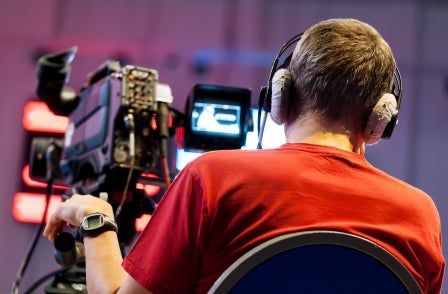
Broadcast regulator Ofcom has permitted six local TV stations to cut back on their commitment to local programming, news and current affairs. (Picture: Shutterstock)
Applications by Made TV's four channels have been accepted to reduce the amount of local programming they are required to broadcast to 37 hours per week.
Ofcom has also accepted their requests to cut the amount of local programming at peak time and is allowing them to show more repeats.
Made Television said in a statement that during its first year it exceeded the number of hours of local programming required and that it is "fully committed" to repeating this in year two.
Made In Bristol's licence, for instance, previously required that it broadcast 37 hours of first run local programming per week in its first year, 44 hours in its second year and 57 in its third year. Now, it is only required to broadcast 37 hours a week in each of the years.
Its original agreement meant it could show 34 hours of local programming repeats in year one, 27 in year two and 20 in year three. This figure now stands at 21 for years two and three.
At peak time, it was required to broadcast 21 hours of local programming in years two and three, but this has now been reduced to 14 hours. It was previously required to show three-and-a-half hours of local programming repeats at peak time – but this has now doubled to seven hours.
The Bristol channel was also previously required to broadcast two hours of current affairs per week in year two and three in year three. These figures have both been reduced to one hour. Previously, it had agreed to broadcast four hours of current affairs repeats per week in year two and three in year three, but these figures have also been reduced to one hour.
Similar agreements have been made with Made TV’s channels in Cardiff, Leeds and Tyne and Wear. Ofcom's Broadcast Licence Committee agreed to the changes.
On Made in Bristol’s changes, the regulator said: “The BLC met on 22 September 2015 to consider the variation request. It noted that the requested changes would not affect the description of the programming output set out in the programming commitments. Whilst there would be some reduction to the quotas for local programming repeats and current affairs repeats, the hours per week of first run local programming and the hours per week of first run local programming in peak time would remain at the existing year 1 commitment levels. The BLC noted that the hours per week of first run current affairs programming would also remain at the existing year 1 commitment level.
"After careful deliberation, the BLC considered that the character of the service overall would be maintained following the requested variations, particularly in view of the fact that the amounts of first run local programming hours and first run local programming hours in peak-time would continue to be delivered at existing year 1 commitment levels. Taking these factors into account the BLC decided that the requested variations would not amount to a departure from the character of the service as originally proposed and to consent to the variation request."
Ofcom also agreed to changes applied for by Solent TV, reducing the hours of local programming required at peak time from 21 hours to 18 hours, and Belfast’s NVTV.
NVTV was previously required to broadcast “refreshed/repackaged” local news bulletins six times a day. The licence now says: “The local news will be repeated twice throughout the day (Monday-Saturday). On Sunday, there will be a local community news roundup. This local news provision will increase in Years 2-3. Local news provision will include Irish language news provision at least once per month.”
Made Television said in a statement: "The Made Television network has produced more content in year one than the licenses required and we’re pleased to see that the programming has proved so popular with a collective audience of nearly one million a week.
"The nightly news and entertainment programmes, as well as our coverage of key events such as the Bristol Balloon Fiesta, Newcastle Pride, Leeds Fest, Cardiff’s Harbour Festival and our series of live election debates have all received hugely positive reactions from the audience. Today’s licence change allows flexibility for Made in Bristol, Made in Cardiff, Made in Leeds and Made in Tyne and Wear to continue their commitment to their viewers and cities.
"Made Television is fully committed to again exceeding the number of hours of locally produced content required as we look forward to our second year of broadcast."
Email pged@pressgazette.co.uk to point out mistakes, provide story tips or send in a letter for publication on our "Letters Page" blog

